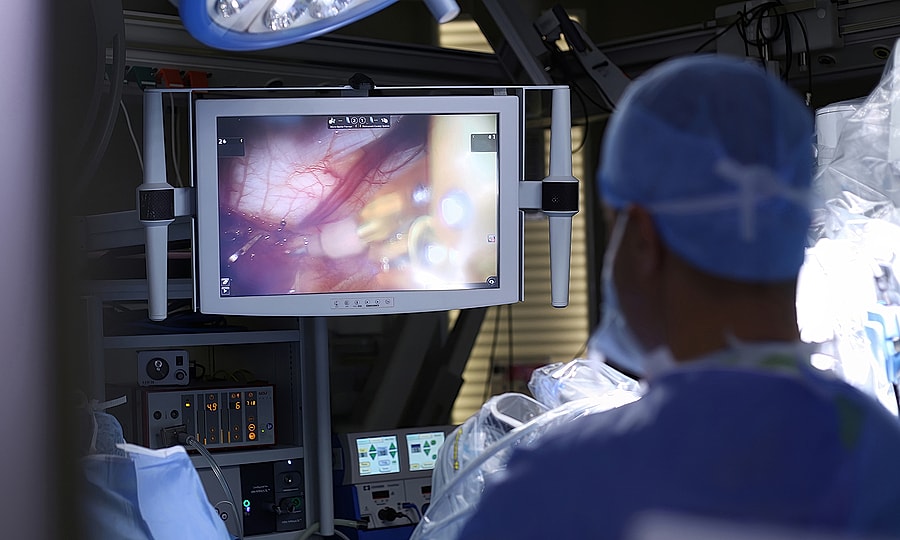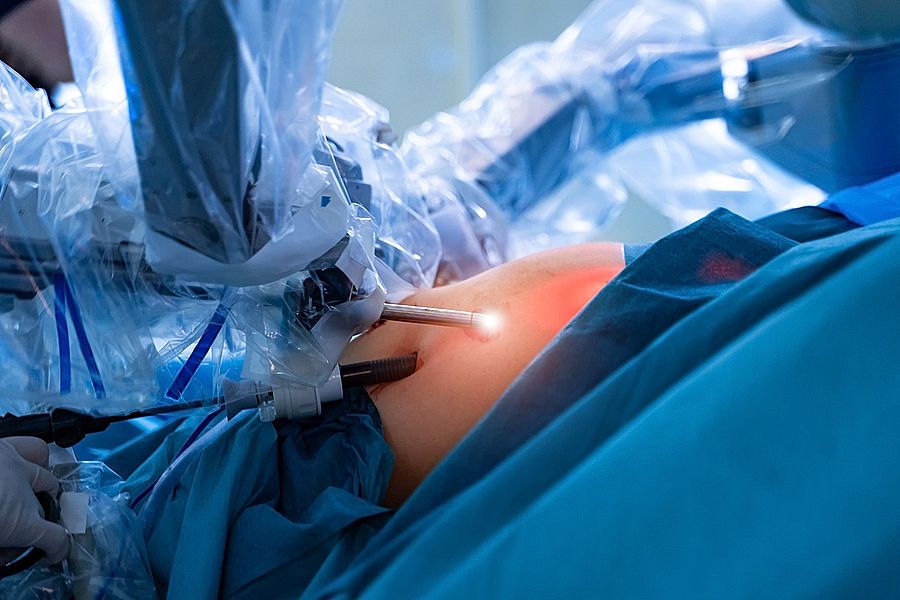
During my years as an orthopedic surgeon, I have witnessed the many benefits of robotic assisted spine surgery for patients. This innovative technology has revolutionized the way spine surgeries are performed and has made it possible for patients to experience faster recovery times with fewer complications. Patients requiring spine surgery often have questions about what robotic assisted surgery is, how it works, whether or not they are a good candidate, and the advantages of this advanced surgical technique.
Robotic assisted spine surgery, also known as robotic surgery, is a minimally invasive surgical technique that uses robotic arms and a camera to perform surgery. The robotic arms are controlled by the surgeon through a console, which provides a magnified, high-definition 3D view of the surgical site. They are equipped with specialized surgical instruments that can move with greater precision and flexibility than human hands, allowing surgeons to perform complex procedures with more accuracy and control.
Robotic assisted surgery begins with the surgeon creating a small incision in the patient's skin, through which the robotic arms and instruments are inserted. The surgeon then sits at a console, where the equivalent of a joystick and foot pedals are used to control the robotic movements. The robotic arms and instruments mimic the surgeon's movements while providing greater precision and dexterity.
 Who is a Good Candidate?
Who is a Good Candidate?Robotic assisted spine surgery is a good option for patients who require spine surgery but want to minimize their risks and recovery time. Patients who have spinal conditions such as herniated discs, degenerative disc disease, or spinal stenosis may benefit from robotic surgery. Patients who have previously undergone spine surgery may also be candidates for robotic surgery. Your specific condition and medical history would be evaluated to determine if robotic surgery is right for you.
Preparing for this type of surgery is like preparing for any other surgery. Patients taking blood thinners should stop taking them 7-10 days before surgery. This includes over-the-counter medications such as aspirin, ibuprofen, and naproxen. If you have a serious heart condition, your cardiologist will be consulted to determine the best way to manage your blood thinners.
You should stop eating and drinking by midnight the day prior to your surgery. If you are a smoker, you should refrain as long as possible before and after surgery. Of course, it is best if you quit altogether.
Maintaining a healthy lifestyle leading up to surgery is highly recommended as a healthy body will heal faster and reduce the risk of anesthesia-related complications like pneumonia or bronchitis.
Faster Recovery Time
Robotic assisted spine surgery is less invasive than traditional surgery, which means that patients experience less pain, less blood loss, and a shorter hospital stay. In some cases, patients are able to go home on the same day as their surgery.
Unmatched Precision
The robotic arms used in robotic surgery are highly precise and can move in ways that human hands cannot. This means that surgeons can perform complex procedures with greater accuracy and control, resulting in better outcomes for patients.
Fewer Complications
Because robotic surgery is less invasive than traditional surgery, patients experience fewer complications such as infection, bleeding, and scarring.
Customized Surgery
Robotic surgery allows surgeons to create a customized surgical plan for each patient, which means the surgery can be tailored to the patient's specific needs and anatomy.
.At the Institute for Comprehensive Spine Care, we are dedicated to providing our patients with the highest quality care using the latest technology and surgical techniques. My team and I have extensive experience in robotic assisted spine surgery and are committed to providing our patients with the best possible outcomes. If you are considering robotic surgery, we encourage you to contact us to schedule a consultation.